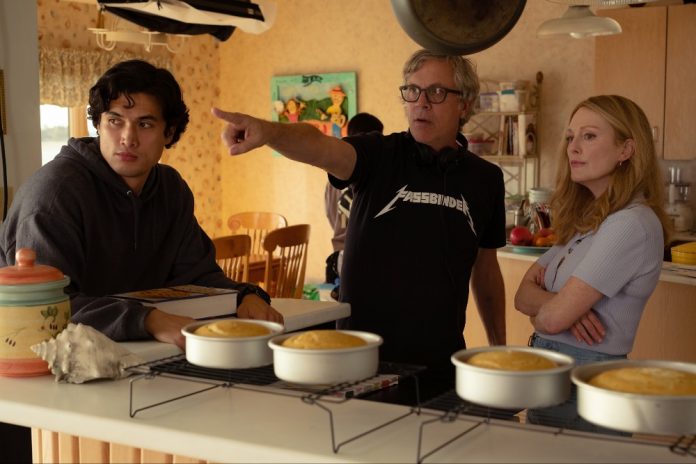Talk about a filmmaker who needs no introduction, especially among the arthouse circles where he’s thrived, Todd Haynes, is no stranger to awards. In the past, he’s generally received more critical and festival awards, as well as being on the Film Independent Spirit circuit than Oscars, although he’s directed quite a few actors to Oscar nominations.
For his 2023 movie, May December, Haynes teamed with Netflix – not his first streamer – but also with Natalie Portman and her production company, Will Ferrell and his Gloria Sanchez Producitons, as well as his long-time regular collaborators, Christine Vachon’s Killer Films, and Julianne Moore, the three having been working together since Haynes’ 1995 film, Safe.
The original screenplay was written by Samy Burch, telling the story of actress Elizabeth (Portman) who has arrived to the small suburban hometown of Gracie (Moore) and her significantly younger husband Joe (Charles Melton) to study Gracie for a television movie in which she’s playing the mother of three. As the film goes along, we learn how Gracie first fell for Joe when he was a 13-year-old student, and yet, they stayed together and had kids. Elizabeth has tasked herself with finding out what makes Gracie and her relationship tick.
Melton has been getting a lot of attention for his performance as Joe, receiving the Gotham Award for his supporting appearance, as well as being honored by the New York Film Critics Circle and other groups.
That’s one of the things Above the Line discussed with Haynes when we got on the phone for an extended conversation about some of May December’s more interesting aspects, from how the film came together to an interesting musical decision, as well as his long-time collaboration with Vachon.
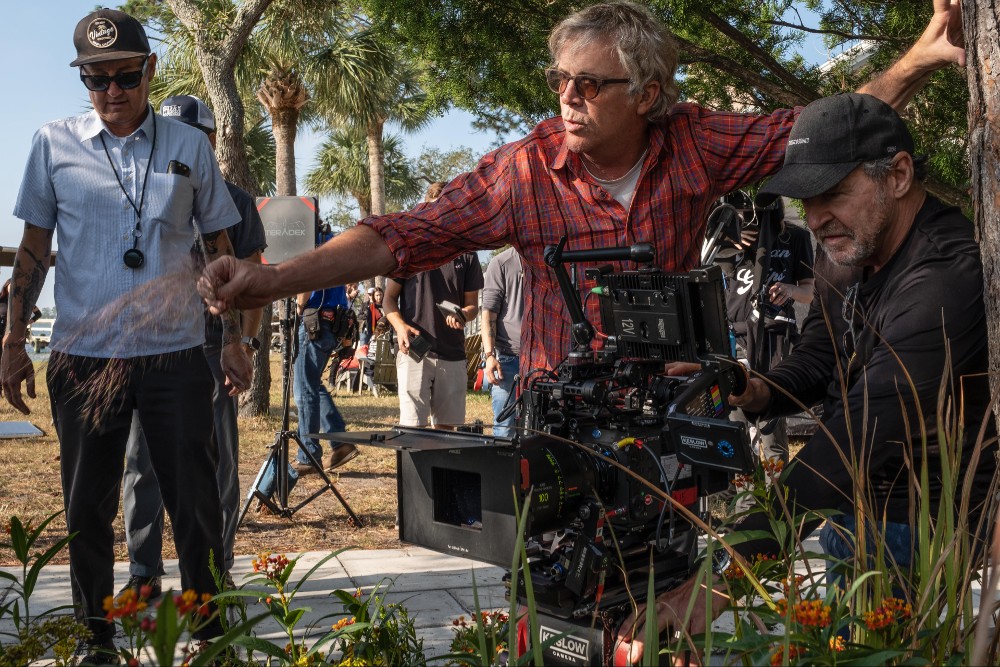
Above the Line: I first saw May December at the New York Film Festival press screening, but it’s a movie that I’ve been hearing murmurings about going back to Cannes. When it premiered on Netflix, social media kind of exploded in a way that I haven’t really seen for any of your other movies. I’m not even sure Carol had that level of reaction.
Todd Haynes: Look, it is amazing to us – it really is. I was just having dinner last night with Affonso Gonçalves, my editor. We watch this thing hatching in our hands, in the editing room, and it’s the time where you have it coming into view in front of you in ways you can’t ever anticipate. Even then, you just don’t know how it will be received or read. We were just saying it’s been such a remarkable thing to witness, unexpected.
ATL: You’ve never exactly made your movies in a vacuum like some filmmakers do, but this was next level. I spoke with Samy the screenwriter a few months back, and she told me about how she wrote it, and then how Natalie and Gloria Sanchez came on board before coming to you and Christine and Julianne. Was this a script that just showed up on your desk unexpectedly?
Haynes: [Producer] Pam [Koffler] and Christine told me that Natalie was sending me something, and of course, that made me extremely interested at what it would be. This was the height of COVID, it was 2020. In fact, since none of us were working in the United States, I was reading more stuff than I usually do. I divide my energies between stuff I’ve developed myself or written myself or brought into fruition. What I hoped would be my next project, I kind of went from something that I was writing to something that I had been developing with a writer. That’s really where my focus was, but I had this time on my hands to consider other things. Natalie had sent me stuff in the past, and it hadn’t quite worked out with my schedule or my interests as much. Working with her was never in doubt — that was always a motive to try to figure out something that we could do together.
And then, I read this script, and it just operated in a level that nothing else did. It put you in such a state of suspenseful uncertainty about how you felt and what you thought about the characters and that uncertainty kept shifting and drawing you in to different positions that you thought you could take vis-a-vis the characters and the moral questions the film raises and the fascinating and troubling power dynamic between the two central female characters. And then, ultimately, this third act that opens itself to the character of Joe.
It had such intelligence, but it also had such a sense of restraint and innuendo. I think, as a director of films and also someone who has written several scripts of my own, it was begging to find its visual and stylistic manifestation. That was so inspiring to think, “HOW do you tell the story?” In a weird way, it was sort of mute on the page, because everything that wasn’t being said on the page was really what the movie was about. That meant that how it became visualized, that’s how you could see what wasn’t being said. That just gave me, as a director, this opportunity to figure out how to make that as exciting on the screen as it was on the page.
ATL: I imagine you must have met with Natalie pretty early on, but at what point, did you want to sit down with Samy and talk to her about her motivations for writing it. How much would you want or need the screenwriter to be involved once you decide to direct?
Haynes: I talked to Natalie right away about it, and we shared the same kinds of excitements about the script. It turned us on. There was something kind of devious about the whole thing that I think connected to both of us and the kinds of work that we’re drawn to. We immediately wanted to talk to Samy about it, and Natalie and I started to formulate some notes for revisions of the script. There were certainly revisions and places that the script moved from where we first read it to, ultimately, the shooting script that were great to begin that process with Natalie and Samy together. I can’t really remember the order of how we were all doing everything remotely. Natalie was in Australia at the time, and she was working, but it was a great process. Samy turned revisions around on the script incredibly quickly, and as you can tell when meeting her and talking to her and seeing the way she’s been experiencing this process. She’s just a wonderful person. She’s incredibly funny, and she’s incredibly down to earth and approachable. She was extremely excited about the fact that both Natalie and I were as serious as we were about her work.
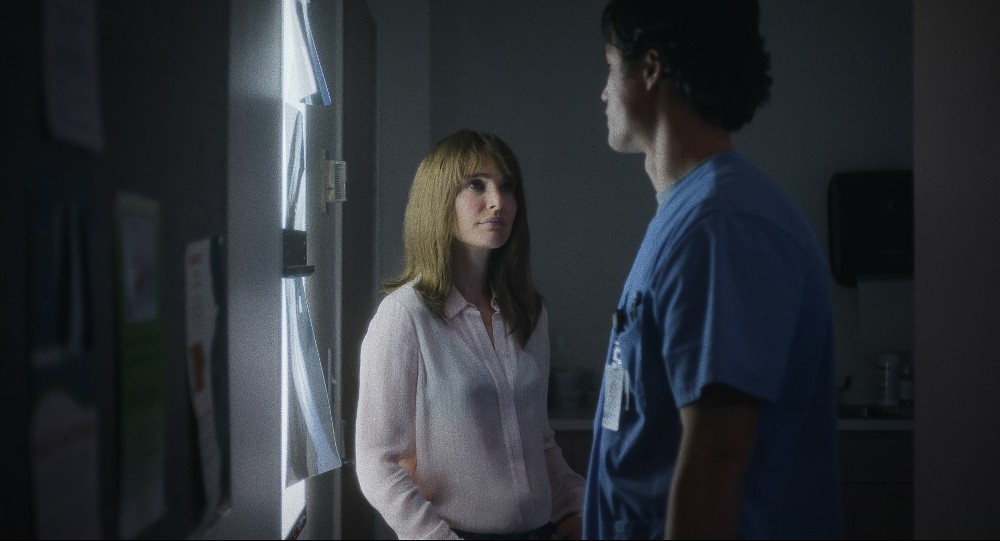
ATL: Samy did tell me that Joe was always written as Korean-American, which add its own casting challenges, like finding Charles Melton, but also casting his kids and his father. I sat through a press conference with him, and he’s just a thoughtful actor and person. Did you know his work beforehand? Who came up with the idea of casting him as Joe?
Haynes: I didn’t know him or his work. I had seen a second of Riverdale when it first started before he joined this series, but I hadn’t seen Charles’s work. I worked with Laura Rosenthal, my casting director, who I’ve worked with basically since Velvet Goldmine in 1998. We’ve had a very rich and productive, collaborative history together, and these challenges are exciting to us, because they take us places we don’t expect. We discovered Millicent Simmonds in wonderstruck, whose career has really taken off. She was an unknown, and she’d never acted before, and she was just this amazing 12-year-old kid when we first found her. She self-auditioned for us, and we were just like, “Oh my God, this girl is beyond. She’s just so remarkably charismatic and smart and engaging and had such a sense of self-possession.”
Challenges like this are creative challenges that are really thrilling. We had various limitations for our criteria for casting Joe and casting his kids and casting his father, but I was continually impressed by the caliber of actor and actresses that we encountered for all these roles. In fact, the girls who read for both daughters was pretty sizable, and really impressive list of really incredible young women. The actors who I also liked when I first saw Charles’s audition were great. They really were great, but Charles still stood on his own in the way that he intuited Joe. From the very first audition tape, obviously without any of my direction, there was something different about him.
There was some sense of this interiority in him that was barely crossing into exteriority. [laughs] He had navigated between those two realms in this way that was remarkable and so confident for an actor who had not done a lot of dramatic work before. He immediately distinguished himself from the others, and yet, we did due diligence, and narrowed the field and ultimately had Julianne read with our top contenders for Joe.
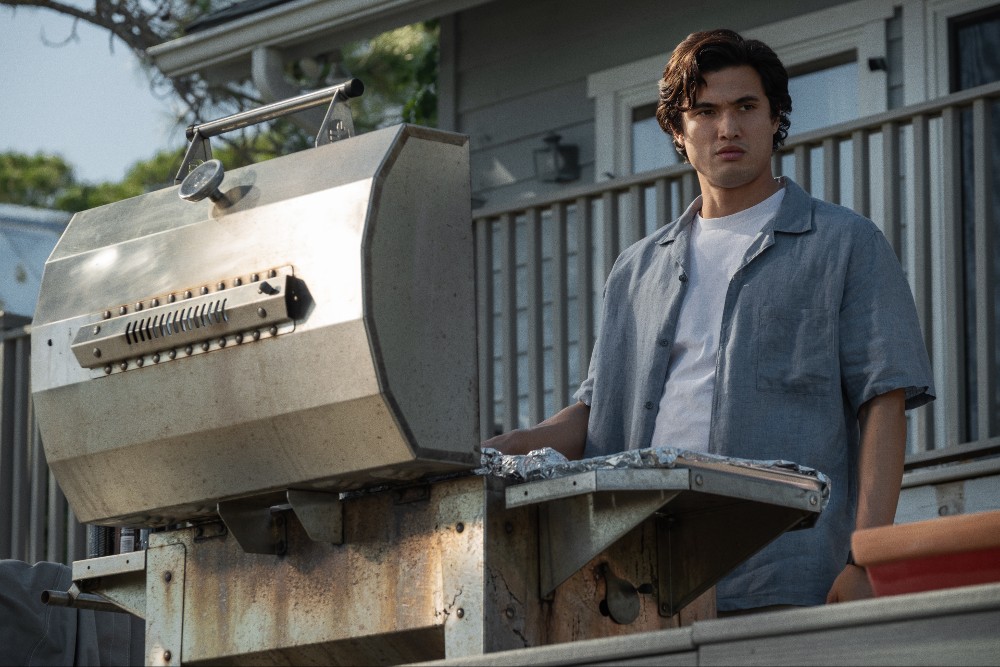
But [with] Charles, Laura and I were holding our breath the whole time. “It’s him, it’s him, right?” But we weren’t going to jinx it, we weren’t going to tip each other’s feelings, and Julianne felt the same way. We were all kind of being very polite and letting the process unfold with all the respect that you try to give it. There were really good actors that he auditioned against, but he was absolutely doing something unique.
[At this point, we mention a scene between Charles and actor Kelvin Han Yee, who plays Joe’s father, but the question is misunderstood.]
Haynes: Playing opposite Natalie Portman and Julianne Moore, and everybody’s talking about this performance, and it’s such a nuanced performance. It doesn’t come with flags and banners and whistles. It creeps up on you in the most delicate way. I think it attracts your own immersion in the storytelling and your own investment as a viewer. It’s almost like YOU discover, Joe, you discover Charles’s performance as a viewer; you feel like it’s something YOU’VE found, because it’s so delicate. The film has boldness in it and a lot of strong strokes in the music and then the austerity of the camera, but then, it has very subtle unstated things that are also interacting with that. So much described what Charles and his role do, it’s really amazing.
ATL: [Realizing the question was misheard.] Oh, sorry, I was actually asking about Kelvin Yi, who plays Joe’s father. I was amazed that he had been working since the ’80s but only doing one or two episodes on television. The scene between the two of them is just amazing.
Haynes: It’s a beautiful, beautiful scene. He had also worked with a friend of mine in Portland, Oregon on a film recently, Earthlings, that John Raymond, who I’ve worked with, and who Kelly Reichert collaborates with most of her recent features. It based on a short story of John’s, Earthlings by Steve Doughton. [Kelvin] is the star of it. He was so incredible.
ATL: I’m sure you’ve talked to death about your relationship with Julianne, so I won’t ask about it. But I do want to ask about working with Christine, because not many people talk about that director-producer relationship, but she’s literally been your ride-or-die from the beginning, so what’s the one main quality that makes her the producer you’ve worked with on everything you’ve done?
Haynes: No, there’s not one. There’s the entirety of who she is. There’s nobody like her – you can’t reduce her down to a single phrase or trait or characteristic. She’s a force. She’s a brilliant person. She’s indefatigable in her work, and then, her insistence on getting it done. She also is an incredible collaborator with other producers. People are scared of Christine sometimes, and think she just dominates every relationship, but she’s the most remarkable collaborator. She knows how to bring people into the producing process when needed, and share it, and give them the credit that they’re due and step aside and let them do their best work. After all these years, and also how we both emerged at the same moment, and came out of college together. The kind of films that interested us and the films that we still love to go back to are very much the same kinds of films. We share so much aesthetically and ideologically, I would say, and we’re also just somehow, through all of this, like best friends. It’s an amazing thing.
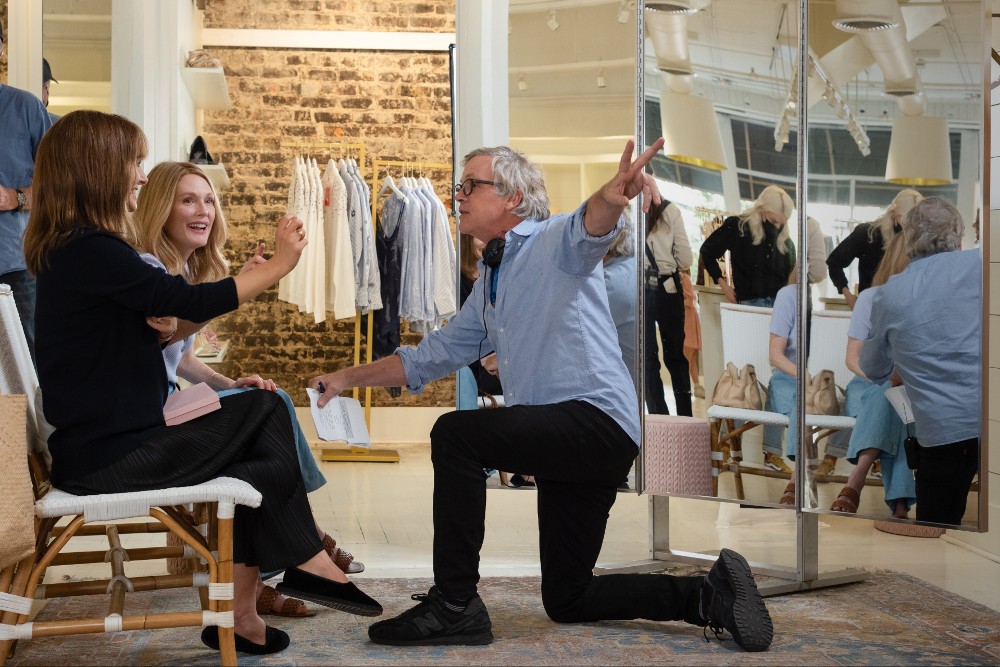
ATL: I spoke to Marcelo Zarvas before actually seeing May December, and he was somewhat vague about what was going on there, but I heard you talk about how you were influenced by the music of a 1971 film called The Go-Between.
Haynes: I saw the film while I was preparing my materials on May December, my image book, getting all the creative antecedents in place, and the references I was going to share with my departments, as I do from film to film. I saw it on TCM, and I think I saw the movie when it came out when I was a kid. I would have been 10 or 11, but it has disappeared. It’s not a movie that is readily [available]… for being a Joseph Losey film, written by Harold Pinter, starring Julie Christie, Alan bates. All of its impressive bonafides, it’s a film that doesn’t get seen. It’s fallen out of circulation in the United States, very, very hard to get on DVD and in America. It blew me away, and the score was the thing that I was absolutely astonished by, how it functions in The Go-Between, how upfront it is, how it slaps you across the face before the movie even begins, and sets you into this state of expectancy and sort of heightened reading of the film that’s about to unfold, trying to figure out where this film is going because of the force and ferocity of that music.
I thought THAT’s what we need for our movie. We need something that excites your desire to be reading between the lines and questioning, but it being kind of exciting like a mystery, like the investigatory process which the first half of the film kind of is with Elizabeth’s investigation into who Gracie was. I just used it as a very strong tone example. I shared it with all my creative team, I shared it with the actors. We played the music while we shot the film, cue by cue by cue from the original score of The Go-Between – we played it on set. So it influenced everything. It influenced the actors, influenced the camera moves, the speeds of zooms and transitions and panning from one direction to another. The rhythm in the film was all informed by this score.
I shared this with Marcelo, before we started shooting the movie. I said, “Marcelo, this is what I’m thinking. We gotta totally go for it, we got to go for broke. ” He was like, “Oh my God. This is crazy. This breaks all the rules of what music scores are supposed to be and do.” It excited him, no doubt. It got to the point where the movie has fused with that music in such a seminal way that I had to come to him with my tail between my legs and say, “Marcelo, I would love you to try to adapt this music, or at least adapt the main melodic signature of that music, which is so hard to shake from your head.” What Marcelo did with that task is so much his own. He made this score his own, and he wrote a lot of original music to balance out the adaptation elements of Michel Legrand. But it’s been hard, because the music’s got a lot of attention, but it is a collaboration between Marcelo Zarvas, and the deceased, beloved Michel Legrand.
ATL: I’m not sure if Randall Poster has seen May December yet. I love that scene where Georgie asks Elizabeth about being a music supervisor. I know he didn’t work on the movie persé, but I immediately thought of him. I bet he gets that question all the time from musicians. Has he seen the movie or commented on that scene yet?
Haynes: I’m sure he has [seen it]. He just sends me the sweetest texts all the time, and I know he’s seen it, but I can’t remember what he said about… I don’t think we’ve talked about that particular scene, but we gotta do that.
May December can be streamed via Netflix, but it’s also still playing in a few theaters around the country.


